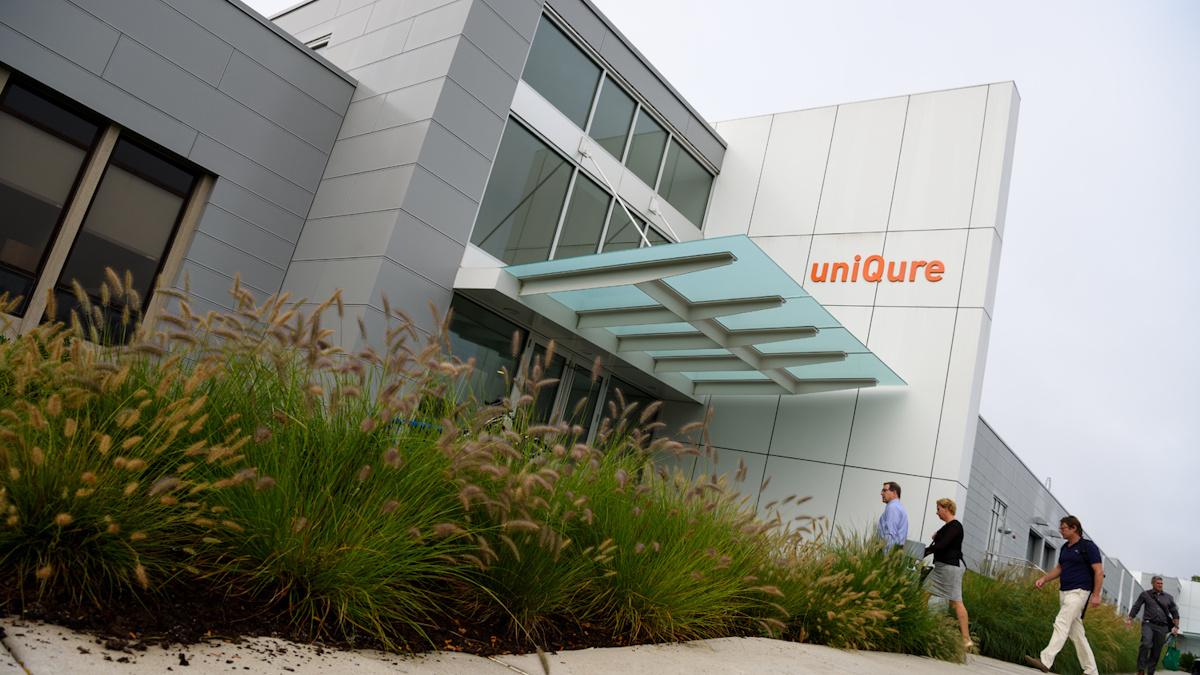Novartis pays $1bn upfront for Huntington's drug from PTC

Novartis has made a dramatic return to the Huntington's disease therapy stage by licensing a candidate from PTC Therapeutics for a whopping $1 billion upfront.
The deal – which has a potential total value of up to $2.9 billion – gives the Swiss pharma group rights to PTC518, PTC's oral mRNA splicing modifier, which is aiming to become the first disease-modifying therapy for Huntington's.
Novartis' move comes after it abandoned the development of its own Huntington's candidate branaplam last year, which had reached phase 2b development, after concluding that the drug's risks were likely to outweigh any potential clinical benefit.
PTC518 is designed to reduce levels of the mutated huntingtin protein that leads to injury and death of neurons, which results in Huntington's disease progression. It has emerged from the same drug discovery engine that generated Roche's spinal muscular atrophy (SMA) therapy Evrysdi (risdiplam), which made $1.5 billion in sales last year.
PTC recently reported positive 12-month results from the PIVOT-HD trial of the drug, showing a dose-dependent reduction in huntingtin protein in blood cells – a 43% decline at the 10mg dose – as well as in the cerebrospinal fluid (CSF).
The effect on the biomarker was accompanied by clinical benefits on disease measurements, including total motor score and the cUHDRS scale that measures functional changes in Huntington's, earning PTC a fast-track designation from the FDA for the drug.
Under the terms of the Novartis licensing deal, PTC is also in line for $1.9 billion in development, regulatory, and sales milestones, a profit share arrangement in the US, and double-digit tiered royalties on ex-US sales. PTC and Novartis will share the US profit and losses for the drug on a 40/60 basis, respectively.
Shares in the company rose sharply on news of the deal, up almost 19% to $52 at the time of writing. The two companies expect to finalise the licensing agreement in the first quarter.
Novartis' chief executive, Vas Narasimhan, said that the licensing deal "bolsters our neuroscience pipeline and reflects our strategic focus and commitment to explore new and potentially transformative approaches for neurodegenerative diseases with high unmet needs."
Another company working on an RNA splicing modifier drug for Huntington's is Skyhawk Therapeutics, which reported phase 1 data with its SKY-0515 candidate earlier this year.
Earlier this year, Novartis also licensed rights to a pair of potential gene therapies for Huntington's and SMA from Voyager Therapeutics, extending a partnership that was signed in 2022 with a value of up to $1.7 billion.
At the moment, uniQure is considered to be out in front in the race to develop a Huntington's gene therapy, having generated phase 1/2 trial results with its AMT-130 candidate in July. Another rival – Bayer – revealed that it had abandoned the development of its rival BV-101 gene therapy in November.












